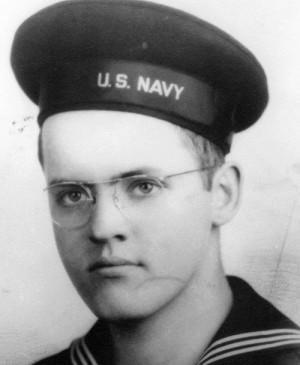
MY LITERARY BFF
ATTICUS AND SCOUT FINCH
Throughout the month of April, you can catch up on my posts for this year’s challenge as well as all my alphabet offerings from previous years on my Blogging from A to Z page HERE.
When I read a great novel or a series of novels, sometimes I wish I could step into the book and join the world experienced by the characters. I just know that if I were there, I’d feel at home and contribute positively to the plot. I think it is those characters that keep me returning to works by the same author and even read those same novels over and over again. For this year’s challenge, I plan to visit those characters we all know and love. Those characters that we want to step off the page because we know that if they did, we’d be best friends forever. Today, please meet Atticus and Scout Finch.
When I was in high school, I had not yet become an avid reader. I rarely picked up a book and required reading for school was tedious. I sometimes turned to the cliff notes to get me through the requirements and of course that is never really the best solution. For some reason after days of procrastinating my reading of To Kill A Mockingbird by Harper Lee I decided to open the cover an begin one day after school. Needless to say I couldn’t put it down once I started. I read all through the night because it was the most compelling story this teenager had ever experienced. There are many interesting characters in this novel but at the forefront are the narrator, Jean Louise “Scout” Finch and her father, Atticus.

the most 10 influential characters from our favorite books scout finch quotes
Scout Finch -We meet Scout when she is five-years old. At the beginning of the story, she is innocent. She has not experience any evil that is out in the world. She is happy spending the day with her brother Jem and their friend staying next door, Dill. Scout is unusually intelligent and learns to read before beginning school. Under terms of her social identity, she is unusual for being a tomboy in the prim and proper Southern world where they reside. She is also the product of her father’s influence. Scout is Scout because of the way Atticus raised her. He has nurtured her mind, conscience, and individuality without bogging her down in fussy social hypocrisies and notions of propriety. While most girls in Scout’s position would be wearing dresses and learning manners, Scout, thanks to Atticus’s hands-off parenting style, wears overalls and learns to climb trees with Jem and Dill. Her upbringing also has made her not always able to grasp social niceties.
Scout starts out as an innocent but as the novel progresses, Scout has her first contact with evil in the form of racial prejudice. How will Scout be changed by the experience? Will she emerge from it with her conscience and optimism intact or will she be forever bruised by the experience. Luckily under her father’s guidance and wisdom, Scout learns that although humanity has a great capacity for evil, it also has a great capacity for good. The story unfolds in a very short period and although Scout is still a child at the end of the book, Scout’s perspective on life develops from that of an innocent child into that of a near grown-up.
Atticus Finch – He is Scout and Jem’s father, a lawyer descended from an old local family and a man generally respected by his town Maycomb where he and his children reside. Atticus is a widower with a dry sense of humor. He lives by a code and has instilled in his children his strong sense of morality and justice. With his strongly held convictions, wisdom, and empathy, Atticus functions as the novel’s moral backbone.
Back in December there was an article on CNN about the five parenting lessons learned from To Kill A Mockingbird. These five lesson are a big part of the character, Atticus Finch. Source: https://www.cnn.com/2015/07/14/health/parenting-advice-to-kill-a-mockingbird/index.html
Lesson 1: Live your values
Atticus lives by a code: let your conscience be your guide. As a lawyer, he takes on a case that everyone says he shouldn’t. He chooses to defend Tom Robinson, a black man falsely accused of raping a white woman. In response to Scout’s comment that most people in the town think it’s wrong to defend the accused man, Atticus explains that “they’re entitled to full respect for their opinions. But before I can live with other folks I’ve got to live with myself. The one thing that doesn’t abide by majority rule is a person’s conscience.” If he didn’t take the case, Atticus tells Scout, “I could never ask you to mind me again.”
Lesson 2: Listen to both sides of every story
 Scout look at it from the teacher’s point of view and how it could be disruptive to her lessons. He even displays his ideals in his dealing with the story’s antagonous, Bob Ewell. He tells his outraged son Jem, “See if you can stand in Bob Ewell’s shoes a minute. I destroyed his last shred of credibility at that trial, if he had any to begin with. The man had to have some kind of comeback, his kind always does…He had to take it out on somebody and I’d rather it be me than that houseful of children.”
Scout look at it from the teacher’s point of view and how it could be disruptive to her lessons. He even displays his ideals in his dealing with the story’s antagonous, Bob Ewell. He tells his outraged son Jem, “See if you can stand in Bob Ewell’s shoes a minute. I destroyed his last shred of credibility at that trial, if he had any to begin with. The man had to have some kind of comeback, his kind always does…He had to take it out on somebody and I’d rather it be me than that houseful of children.” Lesson 3: Keep calm in a crisis
Lesson 3: Keep calm in a crisis
Lesson 4: Have faith in your children
Lesson 5: You don’t have to be tough to be brave



 Check out my other blog
Check out my other blog I'M PUBLISHED
I'M PUBLISHED I'm Published Again
I'm Published Again









I’ve never read the book, but I’ve seen the film a number of times. It’s such a good film and the characters are so well developed.
Good to have you with us for another A to Z!
Arlee Bird
Tossing It Out
LikeLike
Yes Gregory Peck was wonderful. Thanks for stopping by.
LikeLike
This was one of the few books I loved reading in high school. I don’t remember too much about it so I might need to reread it. You wrote a good overview in this post. Thanks for the throwback! 🙂
LikeLike